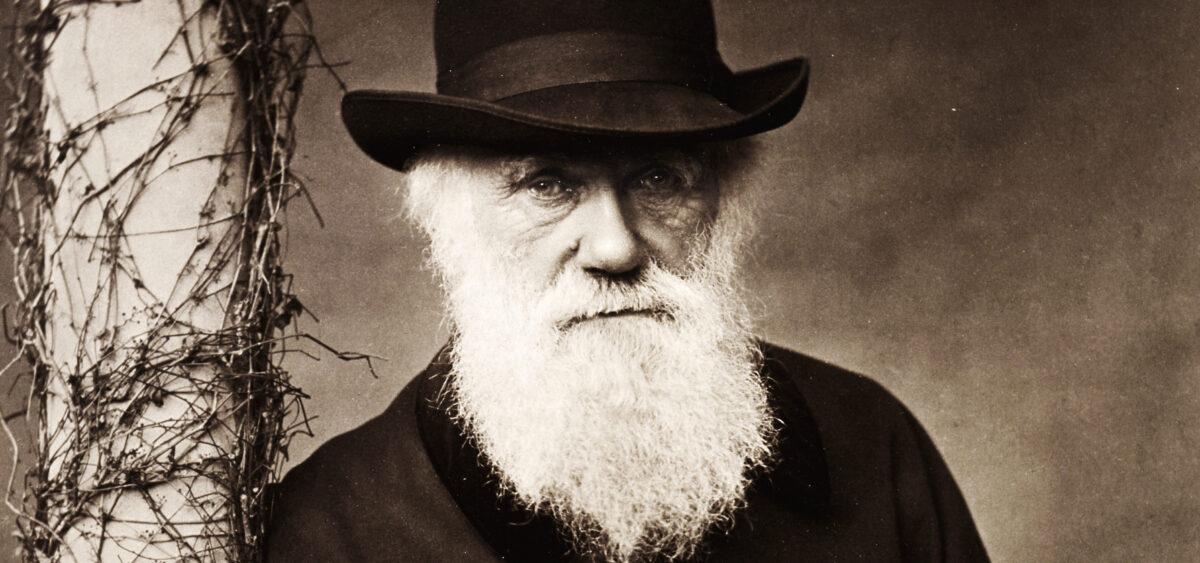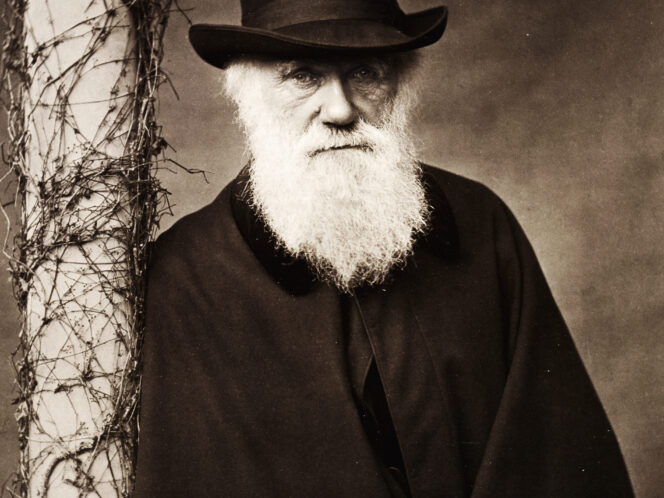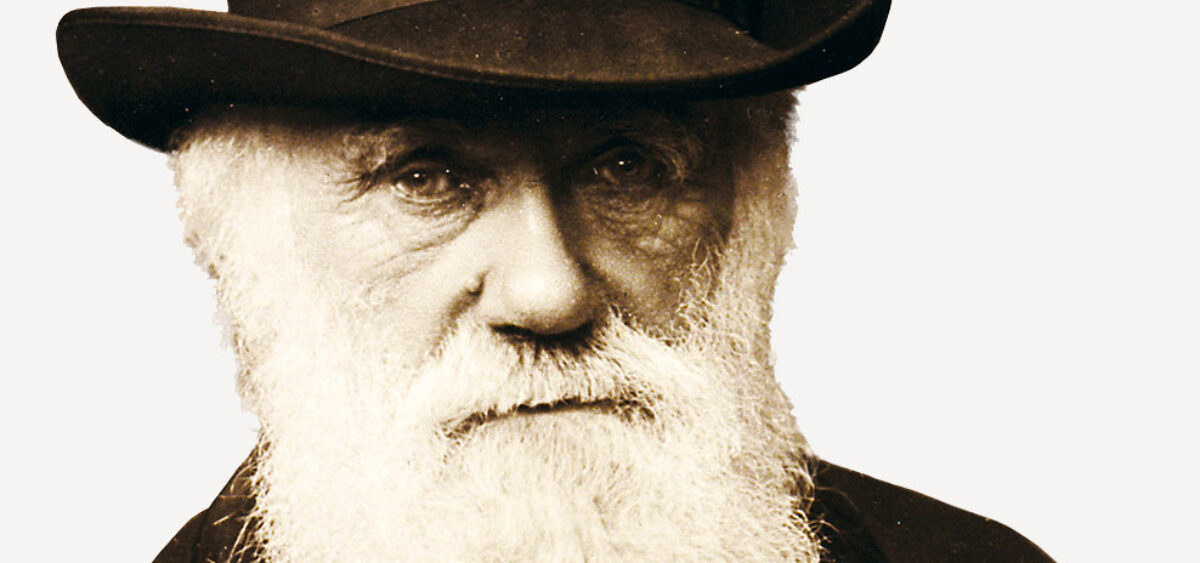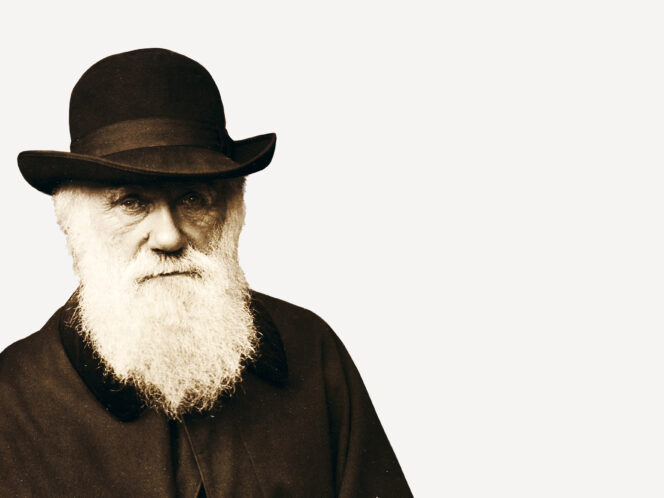
The creator of the theory of evolution believed that, even though the constant fight for survival is a given in nature, our sense of kindness and beauty comes directly from animals, says cultural scientist and philosopher Justyna Schollenberger.
Aleksandra Gosk: If biology is a story about nature, Charles Darwin was the one to make humans part of its narrative. But who were our heroes (and those of Darwin) before the theory of evolution came along?
Justyna Schollenberger: We could say that Western philosophy is largely founded on separating humans from nature. This division distinguishes humans as beings gifted with skills and qualities animals were not believed to possess. Of course, it all started with ancient philosophy—this was how Aristotle defined humans. In modern times, it culminated in the philosophy of Descartes, who firmly denied animals reason and, in consequence, also the ability to experience any emotions. This very radical claim set the tone for the whole narrative about the place of humans in the world.
But Darwin came from the British tradition of empirical philosophy, which claimed that knowledge comes directly from sensory experience. This perspective granted him a different vision of humanity. Scotsman David Hume—the leading representative of empiricism—argued that animals do not use reason, but humans don’t use it in most of their endeavors, either. In his approach, both humans and animals are first and foremost creatures led through life by a nature that allows them to find their way through reality by recognizing the laws of cause and effect.
This intellectual context made it much easier for Darwin to come up with his breakthrough theories. When looking at Darwin, we must view him in the context of his era rather than as a lone genius, suddenly and spontaneously illuminated with revolutionary ideas. He came up with a coherent theory, and, in that sense, he was a genius. Darwin presented a vision in which humans were inscribed in the natural order, blurring the








